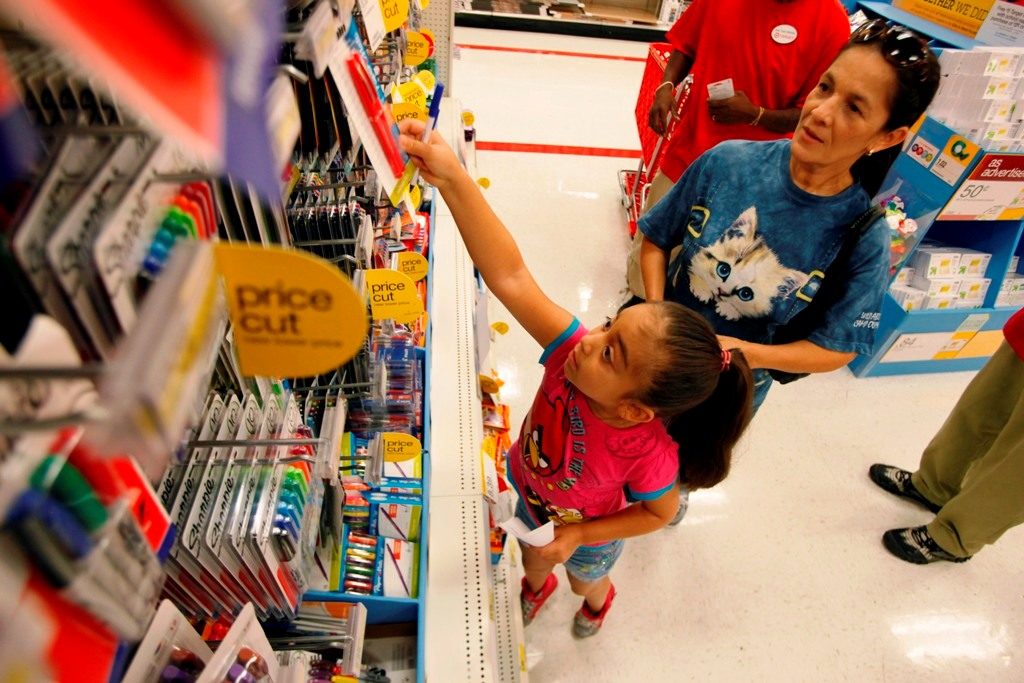Daniel Sutter: Is Alabama’s school sales tax holiday good policy?

Last weekend was Alabama’s annual back-to-school sales tax holiday. If you have a child in school, I hope you were able to take advantage. Tax holidays provide an example of using tax policy to shape peoples’ decisions and raise questions about the role and even size of our government. Alabama was the first of sixteen states with school sales tax holidays in 2018. Alabamians could avoid sales tax on over $900 in school-related purchases, including clothes, books, and computers. A family could have saved over $80 in taxes. Tax exemptions encourage spending which we judge worthwhile. School supplies certainly qualify as worthy. Millions of children nationwide may not have the supplies they need for school, a gap that our teachers generously help fill. A recent survey found that 94 percent of teachers spend their own money on supplies for students, averaging almost $500 over two years. Letting a lack of supplies compromise a $12,000 annual per pupil expenditure on public schools would be a tremendous waste. Still, targeted tax exemptions and deductions are controversial. Some critics label these exemptions “tax expenditures” to highlight an equivalence to government spending. Consider our sales tax holiday. Alabama alternatively could have collected the sales tax as normal and purchased supplies for children. Tax expenditures are not identical to spending tax dollars, as no family is required to buy school supplies. But a resemblance exists. The individual and corporate income taxes contain America’s most significant tax expenditures. The ones most familiar are the mortgage interest and charitable contributions deductions. Deductions lower the cost of the designated activity, resulting in more people owning homes and more dollars going to charities. The Tax Foundation estimates that Federal tax expenditures in 2015 totaled $1.2 trillion and $130 billion for individual and corporate taxes. That amounted to almost 80 cents in tax expenditures for every dollar of individual income tax revenue, and over 50 cents per dollar of corporate tax revenue. Viewing taxes not collected as spending increases the size of the Federal government. Washington spent $4 trillion in 2017, or 21 percent of GDP. Adding tax expenditures brings this to almost 28 percent of GDP. Tax expenditures probably shouldn’t count equally to spending, because people would have bought school supplies and homes without tax breaks. But spending alone understates the impact of government. How one views reducing Americans’ taxes via deductions likely depends on how one views the relationship between government and citizens. Believers in limited government probably view citizens as entitled to keep the money they earn. And if government answers to the people as the Declaration of Independence proclaims, government shouldn’t tell us how to spend our money. People who believe that government should address pressing societal needs might view the loss of tax revenue as limiting the good government can do. Economists raise two points about tax expenditures. The first involves the impact on economic growth. A tax code with many deductions requires higher tax rates to collect the same amount of revenue. High tax rates reduce growth. Taxing all income at lower rates should increase economic growth without reducing government spending. The second point involves the consequences of government dispensing tax breaks as it chooses. A healthy, growing economy requires investment in promising businesses which provide new and better products and services and earn profits, not merely avoid paying taxes. Lobbying Congress for tax exemptions can become more profitable than expanding a successful business. The House of Representatives recently passed a Health Savings Accounts reform including tax breaks for gym memberships. Passage of this tax break increased the value of Planet Fitness’ stock by four percent. Nobody likes paying taxes, so giving people a break for good deeds seems reasonable. Yet exempting good causes, like school supplies, induces others to pursue tax breaks for themselves. When the dust clears, keeping tax ratees low and making everyone pay for school supplies might look like a better plan. ••• Daniel Sutter is the Charles G. Koch Professor of Economics with the Manuel H. Johnson Center for Political Economy at Troy University and host of Econversations on TrojanVision. The opinions expressed in this column are the author’s and do not necessarily reflect the views of Troy University.


